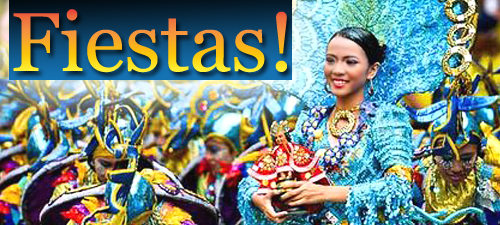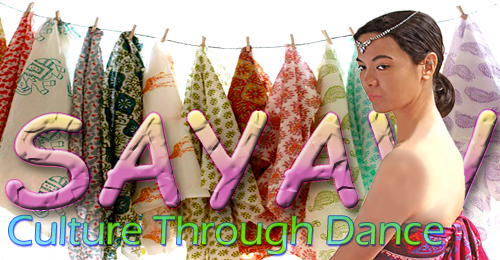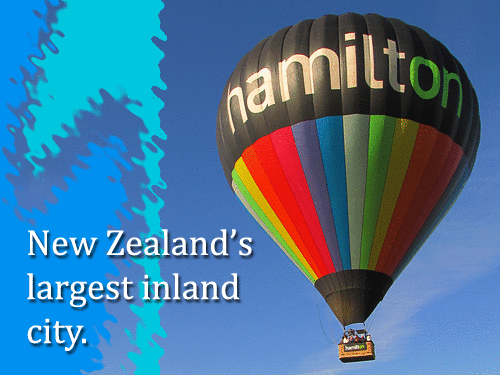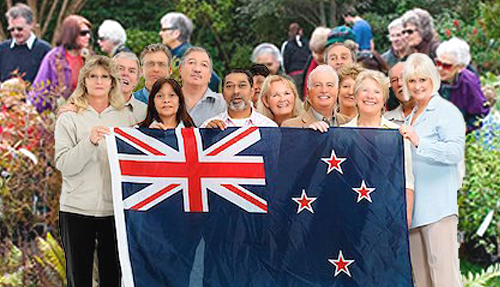
INTRO: Filipino-Kiwis who are in New Zealand today constitute a new but growing addition to the ethnic profile and fabric of society. Their community population concentrations are mostly found in the urbanized major cities of Auckland, Hamilton, Wellington, Christchurch and their surrounding suburbs and outer areas.
Whether you realize this or not, each localized Filipino-Kiwi community grouping that settles itself in different parts of the country have ‘assets’ not yet being identified, developed, mobilised and enhanced. Information regarding these assets (e.g. human, occupational, contact networks here and abroad, etc.) can be organized and employed by resident community-based organisation as the foundation from which to build a positive future.
At the local level, developing a simple inventory or ‘mapping’ process (which is really and information gathering exercise) designed to promote connections or relationships between individual members, between them and organizations, and between organizations and organizations eventually creates a synergy that exponentially increases the capacity and capability of the community to meet the unique needs and aspirations of its constituent members.
So why do this? There are times when government or a city council’s services may not be appropriate to the culture and dynamics of a particular community, and do not contribute to building the capacity and capability of the community or empower individuals thereof to be self-sufficient.
Traditional methods of community-based work undertaken by government and city councils tend to focus on a community’s deficits (i.e. their needs and problems) basis. In a nutshell, “needs-based” assessments tend to lead to community dependence rather than real and meaningful community development and self sufficiency.
What’s evident too is that when most Filipinos migrate to New Zealand they usually find themselves alone in a foreign environment trying to sort out best they can their next steps for settlement. This results in a much longer time for them to integrate themselves better and begin contributing to the communities they belong to. And because if they are not really properly helped and guided they end up not feeling invested from a community standpoint whether this be at the local, regional or national level.
This has always been one of the underlying reasons why the Filipinos in New Zealand Group (for which this Filipinos in Hamilton website is a part of) have from the beginning of its operations declare that its primary purpose is to promote ethnic pride, a sense of belonging and connect all Filipino-Kiwis, native-born and foreign-born, using interconnected ‘touchpoints’ on the Web where they can exchange any Filipino-related information to educate, nourish, uphold, defend, promote and teach others – including non-Filipinos, all about Filipino-Kiwi values, traditions, history, arts, cul ture and aspirations.
______________________________________________________________

PUTTING A NAIL ON IT
New Zealand, like any other country, is different. It has its own laws, rules and ways of doing things. It has an increasingly ethnically-diverse population. Its people, even if they speak English as might you, have their own accent and their own everyday language. Hearing stories from other migrants will help you to make sense of your own experiences, and as you get more involved in New Zealand life and the community, you will be able to find your fit and tell your own stories.
This may sound a bit strange to newcomers but sometimes the more similar your home culture seems on the surface, the harder it can be to understand subtle social differences of others. New Zealanders born in this collection of islands which sit in the farthest settled country of the Southern Hemisphere describe themselves as ‘friendly but reserved’ and ‘open but respectful’. Putting a nail on what exactly it means can be confusing at times and you will have to give yourself some slack and a lot of exposure. Be patient, and eventually you will come to understand just how New Zealanders work and live.
A good starting point to get an overview of the ‘Kiwi’ lifestyle today is to visit the website Te Ara. It is the online Encyclopedia of New Zealand.
Within this website you will find a plethora of ‘snapshots’ of a country that the Māori call Aotearoa (or “Land of the Long White Cloud”), including the develop ment of its history, natural environment, government, economy and culture. You will also discover why New Zealand is considered one of the most scenically beautiful country in the world.
In New Zealand, you’re never more than 130-km from a coastline – it has about 18,000-km of it!. It’s also a land of spectacular mountain ranges and now-tipped peaks, active volcanoes and geysers, crystal clear lakes and rivers, distinctive native flora and fauna, and farmlands that in some cases stretch out towards the horizon. The country was isolated for millions of years and is still geologically. Its unique flora and fauna include many species not found elsewhere like, such flightless birds that include the iconic Kiwi.
The variety, beauty and accessibility of these natural features are central to New Zealand’s identity, and attract millions of tourists every year, as do thousands of new migrants from almost all parts of the world who have managed to obtain residency status seeking a better place to live in this world.
Most newcomers are able to settle well and begin their process of ‘fitting-in’ but others are not so fortunate even at the start of their new journey.
Wrong choices eventually lead to financially challenging situations which can be avoided. Your outcomes all depend on what you do at the starting point.
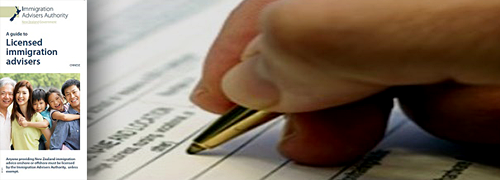
BEWARE THE UNSCRUPULOUS OPERATORS
In some recent articles that have featured in the Christchurch Press, allegations have been made that Filipino skilled workers travelling to New Zealand for the Christchurch Rebuild have been charged huge amounts of money by their recruitment/immigration agency in the Philippines. Some of these unscrupulous operators manage to evade the law but a few nevertheless get noticed and are penalized for their nefarious activities.
It is understood, that the Philippines’ Overseas Employment Agency (POEA) – a government agency that regulates the Filipino recruitment industry, revoked the license of three such operators in the Philippines this year (the last one being in November 2014), uncovering that they have charged well over the maximum recruitment fee to hapless individuals in the Philippines for placement offshore.
For instance, the maximum fee is equivalent in value to one month of their proposed salary. It is alleged that in some instances individuals have been charged in excess of NZ$10,000.00, which is well over and above the industry’s standard maximum amount.
What is extremely disappointing about these circumstances is that it clearly amounts to a form of exploitation of often clueless individuals who wish to fulfill their dreams. The fact they may have not looked into this process well enough is that there are some very good and honest recruitment and immigration advising agencies operating both in the Philippines and in New Zealand who do charge reasonable fees for their services, and do not financially exploit migrant-appli cants whatsoever.
BAD ONES DO GET CAUGHT EVENTUALLY
Related to the narrative above, there are also a number of unscrupulous parties in New Zealand as well who actually operate as recruiters and licensed immigra tion advisers.
In July this year, The Bay of Plenty Times reported the case of a Tauranga-based (North Island) immigration adviser who was in the process of being stripped of her license. She was ordered to pay more than NZ$20,000 after what the Immigration Advisers Complaint and Disciplinary Tribunal found amounted to a “systematic exploitation of a vulnerable migrant” – in this case, a young Mex ican woman.
The Tribunal’s decision was the third complaint upheld against the immigration adviser in question and that the other two previous complaints upheld were on the grounds of failing to provide appropriate and professional immigration advice, proceeding with an application that could not succeed, and failing to pro vide a written agreement.
This is yet again another example of “licensed” immigration advisers who brand themselves as “regulated” by the New Zealand Government, but in reality appear to have some serious issues or hidden agenda in the way that they actually deal with their migrant clients.
There are similar cases under investigation and a significant backlog of com plaints with the Tribunal, and no doubt as they make their way through the com plaints process more and more of these so called “licensed” immigration advi sers will lose their licenses.
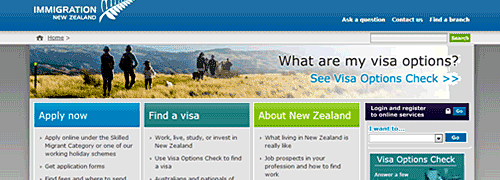
WIDEN YOUR SCOURCES OF INFORMATION
Irrespective of your location, if you are looking to migrate to New Zealand all applicants are encouraged to consider also contacting at least one New Zealand based professional recruitment and/or immigration service provider for an opinion on eligibility, and advice on the type of service they provide and fees they charge.
Many new migrants doing their groundwork homework believe that it is appro priate to engage an immigration adviser in their own jurisdiction, although in most instances the service that is required can be provided by a New Zealand onshore operator as well, and in some jurisdictions the cost of engaging a New Zealand based adviser is probably less than costs associated with engaging local providers.
The key consideration here is that when looking to engage either a professional immigration adviser or perhaps a recruiter to assist with your migration move, do undertake some basic research and background investigation while consider ing a number of options before committing to one provider.
Reviewing options available to you will allow you to progress your migration in a more informed way, secure in the knowledge that the service you are going to receive is professional and the fees you are being charged are fair and reasonably reflect market rates given your particular circumstances.
When the need is great for skilled migrants because there is a shortage there are also instances where New Zealand companies involve themselves with the pro cess of offshore recruitment and assist chosen candidates with obtaining proper visas with Immigration New Zealand (INZ). In many cases, these employers sub sidize some of the costs to ensure the success of their own labour force require ments.
For example, Skilled Migrant Business Services supports employers and their new migrant staff with settling in Christchurch. It is an INZ programme deliv ered by the Canterbury Employers’ Chamber of Commerce (CECC).

LET YOUR CLICKS DO THE WALKING
To learn more practical information on different aspects of Kiwi life, such as healthcare, education, banking or work culture visit the New Zealand Now web site. This website offers some valuable guidance and insights to newcomers living and working in New Zealand. It is a website sponsored both by the New Zealand Government and the Ministry of Business, Innovation and Employment.
If you have other questions about living and working in New Zealand, you can also email you question/s to: newmigrantinfo@mbie.govt.nz or ring the Immi gration New Zealand Contact Centre on 0508 558 855 (Press 2).
By now as you read this post you are probably saying to yourself “but what kind of information should I be looking for to keep me better informed and know ledgeable about the whole process?” Well, one of the best sources that provide information about such matters is the website of INZ.
It covers a swathe of related topics some which are enumerated below:
• connect with others in the community
• find somewhere to live
• find job opportunities and work
• understand the workplace culture
• locate a doctor and other health providers
• understand the education system and find a school
• access English language training and skills
Then, there are also other practical matters that come to mind as far getting settled properly after your arrive in New Zealand, say in Christchurch City for example. The active links hereunder contain concise information packs you can download (in printable document format of PDF) and provide valuable inform ation to newcomers:
• Services
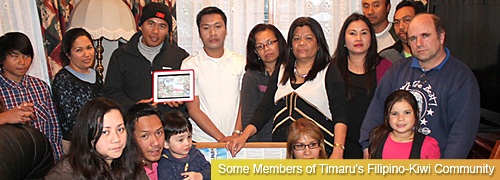
FILIPINO-KIWI ACTIVITIES IN SOUTH ISLAND
The Filipino-Kiwi community across New Zealand has grown to 40,000+ individuals and the number is growing given the current and ongoing need for professionals like architects, engineers and skilled construction workers for the Christchurch Rebuild.
For example, there are a good number of individuals in South Canterbury’s Filipino-Kiwi community who are now working for Downer Group – a leading pro vider of engineering and infrastructure management services to customers operating in market sectors including Minerals & Metals, Oil & Gas, Power, Road & Rail Infrastructure, Telecommunications and Water. They are members of the crews involved in the ultra-fast broadband rollout. The same applies too for other skilled Filipino workers who have been recruited by other Christchurch-based companies and businesses involved in that city’s rebuild.
Across the wider Canterbury Region, many dairy owners whose farms are located there also express some preference for employing Filipinos who have farm management or operational experience. A growing number are being taken in an effort to narrow down serious gaps in staffing requirements of these dairy farms.
Dairy working hours (a sometimes hands-on 12-hour or more work routine in some reported cases) is the biggest challenge newly-employed Filipino farm hands face. Such farms in the countryside can become lonely places after work hours because of their relative distance away from urbanized towns and cities where most social amenities and distractions are found.
Filipina-Kiwi Belinda Dewe of Timaru, for example, has formed and now chairs a shelter and cultural group for Filipino dairy farm workers called the South Canterbury Filipino Association Inc. (or SCFAI). Its activities cover a geogra phical region of the Central South Island which includes Timaru, Temuka, Win chester, Pleasant Point, Oamaru, Fairlie and Ashburton – obviously areas where you also find other Filipino-Kiwis working and residing.
SCFAI’s purposes are to strengthen unity and foster camaraderie amongst Filipino-Kiwis and their families based in South Canterbury; actively promote the best Filipinos talents, values, culture and traditions while implicitly imbibing the best of what New Zealand; and, provide settlement and/or integration assistance (when sought) to new Filipino migrants in South Canterbury region.
In similar parts of the South Island –where more Filipinos are settling in to undertake activities of dairy farms and the rebuilding of earthquake-devastated Christchurch, you also find the Philippine Society of Canterbury Inc. (or CSCI) on Facebook.
Since 1987, CSCI has been helping new Filipinos migrants in this region of New Zealand by providing reference letters to financial members when applying for jobs, permanent residence or citizenship. It also promotes Philippine culture in Canterbury that encourages them to express their Filipino identity while adjust ing to New Zealand society.
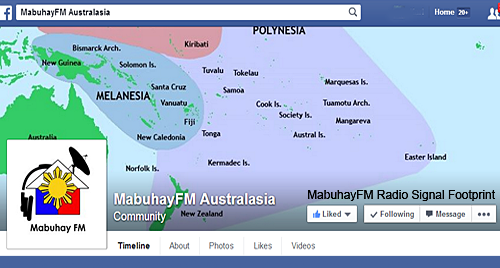
THE SPIRIT OF BAYANIHAN IS ALIVE
Up in the central North Island Waikato Region in Hamilton City, more multi-cultural social events and gatherings attract new Filipino migrants who decide to settle in the North Island. One individual who helps spread the news over the airwaves is Rene ‘Direk’ Molina and his informal team of community supporters. His familiar voice on radio broadcasts explains an undiminished role in hosting airtime in 106.7 Mabuhay FM – the “first Filipino radio station established in New Zealand”.
The radio programme hosted by Direk has been around for a few years staring small at first but gradually growing into full-blown formats. Its primary purpose is to nurture, disseminate, educate, develop, promote, and celebrate Filipino-Kiwi’s heritage, history and culture through mass media using music and announcing events. It also aims to introduce to other diverse ethnic groups the Filipino-Kiwis’ rich musical history and to promote unity in diversity.
This radio station broadcasts news and other content 24/7 from Hamilton City (appox. 124.6-km south from Auckland CBD) with the support of Programme Director Dannii Vallely, Marketing Manager Lara Signal and Station Manager Phil Grey. It is one domain in media where Direk continues to inform the community of upcoming events, developments, issues and opportunities.
If you wish to interact with Direk Molina you can do so by commenting or posting messages through this radio station’s own Facebook Page timeline wall which he administers. He’d loved to hear your feedback and other suggestions.
Then there are also other Filipino-Kiwi run organisations like the Waikato Filipino Association, Inc. (or WFA) – a social and cultural non-profit entity also based in and around Hamilton City. It was founded primarily to preserve and promote Filipino ideals, values, culture and traditions especially song and dance for Filipinos-Kiwi families and their friends. The WFA has participated in other local community activities for the past few years thereby fostering closer cul tural relationships with other groups in the wider parts of Waikato and a bit fur ther afield.
One last word on these matters. Do visit the Facebook Page of Filipinos in New Zealand Group as updates are posted from time to time as these become avail able. The link is found below.
Related Filipino-Kiwi Community Websites:
Filipinos in Auckland | Filipinos in Wellington | Filipinos in Christchurch
Filipinos in New Zealand Facebook Page
Filipinos in Hamilton | You Want To Migrate?
______________________________________________________________

 During the Spanish
During the Spanish






